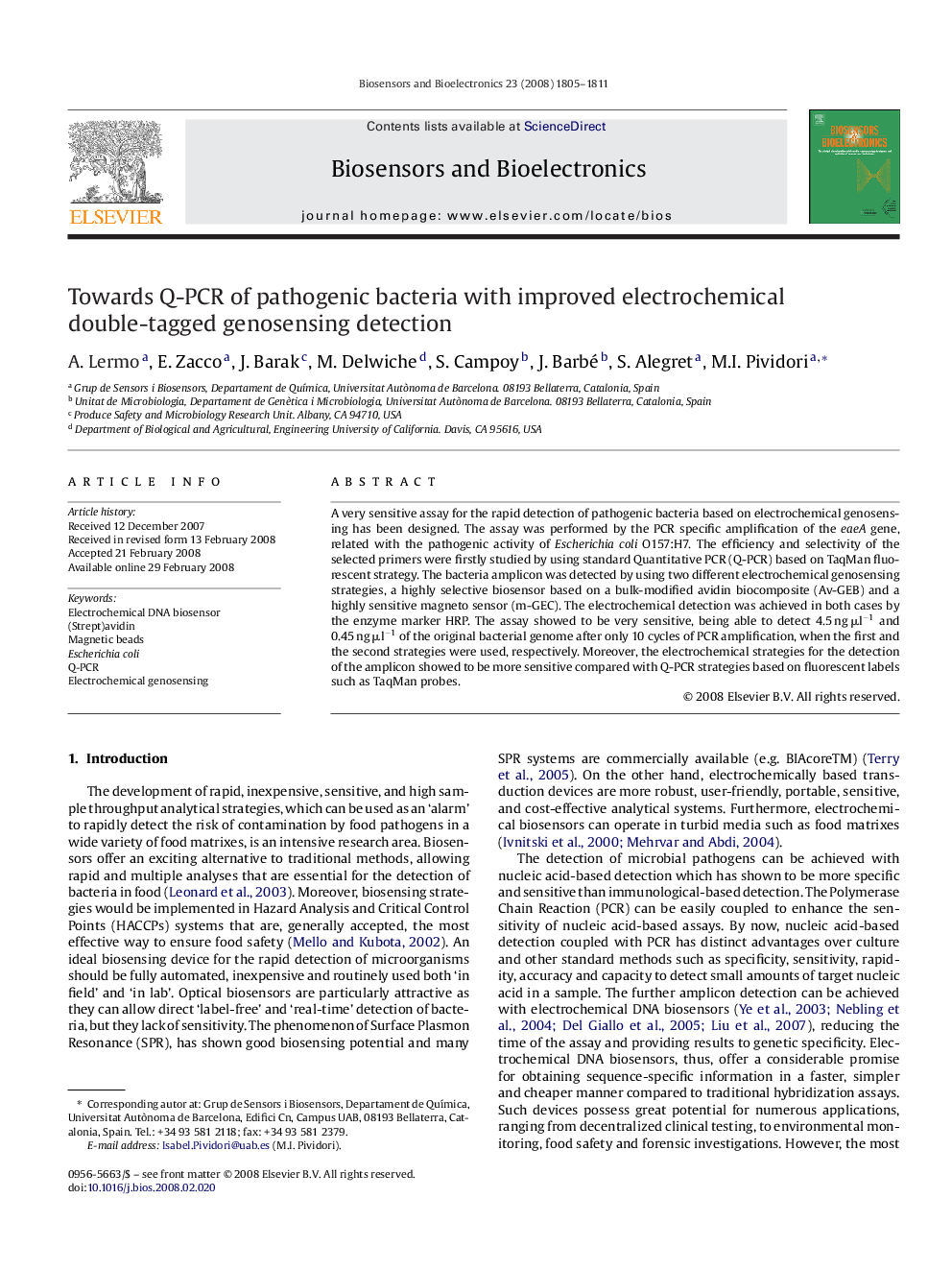| Article ID | Journal | Published Year | Pages | File Type |
|---|---|---|---|---|
| 869064 | Biosensors and Bioelectronics | 2008 | 7 Pages |
A very sensitive assay for the rapid detection of pathogenic bacteria based on electrochemical genosensing has been designed. The assay was performed by the PCR specific amplification of the eaeA gene, related with the pathogenic activity of Escherichia coli O157:H7. The efficiency and selectivity of the selected primers were firstly studied by using standard Quantitative PCR (Q-PCR) based on TaqMan fluorescent strategy. The bacteria amplicon was detected by using two different electrochemical genosensing strategies, a highly selective biosensor based on a bulk-modified avidin biocomposite (Av-GEB) and a highly sensitive magneto sensor (m-GEC). The electrochemical detection was achieved in both cases by the enzyme marker HRP. The assay showed to be very sensitive, being able to detect 4.5 ng μl−1 and 0.45 ng μl−1 of the original bacterial genome after only 10 cycles of PCR amplification, when the first and the second strategies were used, respectively. Moreover, the electrochemical strategies for the detection of the amplicon showed to be more sensitive compared with Q-PCR strategies based on fluorescent labels such as TaqMan probes.
